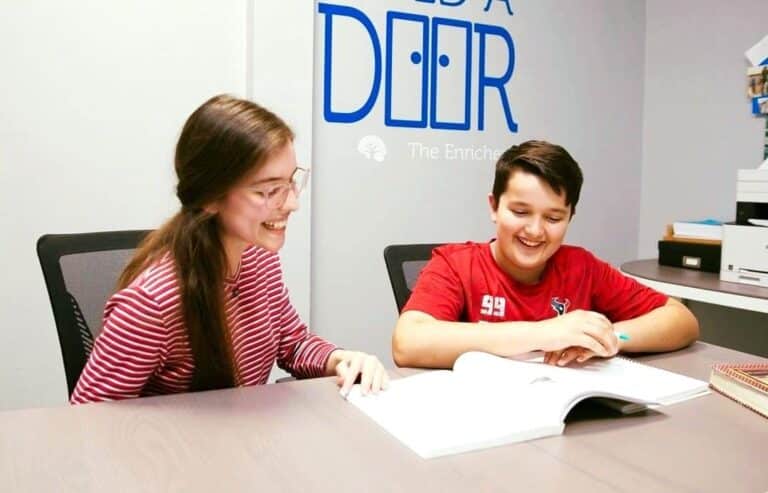Students’ tendency to correlate self-worth with achievement—be it academic, athletic, or otherwise—is by now well-documented. This pressure, unsurprisingly, can also negatively impact child-parent relations.
Conditional Regard: The Opposite of Unconditional Love
One Baylor University study conducted in 2021 found that more than half of the 500 students surveyed believed their parents’ love for them fluctuates according to their performance in school. This phenomenon is referred to as “conditional regard” (think: the opposite of “unconditional love”).
Conditional regard, or at least the fear of it, might be especially prevalent in immigrant families, where a child may feel extraordinary pressure to live up to the sacrifices their parents made by leaving their home countries to pursue new opportunities abroad. Often, such decisions are attributed directly to the parents’ desire to guarantee a lifestyle for their children that’s more auspicious than the one they had.
Immigrant or not, anxieties around underperformance can also afflict gifted children when, say, they commence undergraduate studies and suddenly find themselves struggling academically, perhaps realizing they are now surrounded by students who were just as high-performing growing up. Later in life, gifted children may struggle to advocate for themselves in the workplace because they fear admitting a lack of understanding and asking for help.
As expected, associating self-worth with grades can trigger counterintuitive consequences: such students are more likely to experience depression and anxiety, which can consequently harm their academic performance, igniting a vicious cycle of underperformance and self-loathing.
Thankfully, parents can explore several strategies to ensure their children know they are valued and loved for who they are, rather than for their academic performance. Today’s important takeaway is to start early: though it is never too late to begin incorporating self-affirming practices, parents will find it easier to ingrain these lessons in their children at a younger age.
Montessori School Philosophy
The Montessori school system prioritizes instilling a sense of self-assurance in its students by cultivating creativity, independence, problem-solving skills, and effective communication. Discovering at a young age the value of organization, sharing with others, learning from those with experience and, at the right age, teaching those with less experience are valuable Executive Functioning lessons that can help children grow into well-adjusted college students and employees later in life.
While a Montessori education is a costly investment inaccessible to many parents, similar philosophies can be implemented at home. For instance, parents can remind children that their authentic self and their role in the house, like doing dishes or helping a younger sibling, are valued and cherished.
Discipline and Affirmation: Two Sides of the Same Coin
Our self-esteem is shaped by how we’re disciplined as much as it is by how we’re praised. Studies show harsh forms of punishment, including corporal discipline, can result in lowered self-worth in children and teens.
In matters of discipline, allow your children to experience the “logical consequences” of failure and error. Logical consequences reflect, through cause-and-effect, the realistic outcome of a child’s misbehavior.
For example, if a young child carelessly knocks over a bowl of milk, rather than punishing the child—which can create fear and resentment in a child—a logical consequence would require that the child contribute to cleaning up the mess. Going forward, the child will recall how important it is to be cautious when handling milk, not because they may face aggression and anger from a parent otherwise, but thanks to an awareness of the effort required to clean up a spill. When logical consequences are prioritized in the household, children are less likely to equate honest mistakes with a decrease in self-worth.
Of course, verbal affirmations can also be beneficial for instilling self-worth in the long term. As your child progresses through school, equate achievement with the celebration of hard work and knowledge gained rather than achievement alone. Instead of “I am so proud of you for getting an A on this project,” try: “I am so proud of how hard you worked to get an A on this project,” or “I am so proud of all that you learned through working on this project.” Consider expressing approval of demonstrations of independence and self-advocacy as well, such as: “I am so proud of the initiative you took to ask your teacher for help on this project.”
Children already feel pressure to perform well in academics every day. Students are constantly comparing grades, and teachers are constantly assessing progress and intellectual achievement. Let home be a safe space where your child feels they are loved and valued for the joy their presence brings to everyday life.
Executive Function is at the core of everything we do at The Enrichery to support our students with their academic and personal lives. Both our Test Prep programs and our Academic Coaching sessions incorporate tried and true Executive Functioning-centered teaching methods. Students of all ages and levels are encouraged to seek the support they require, which can help them transition to adulthood. Reach out today for more information about how we can support your student





